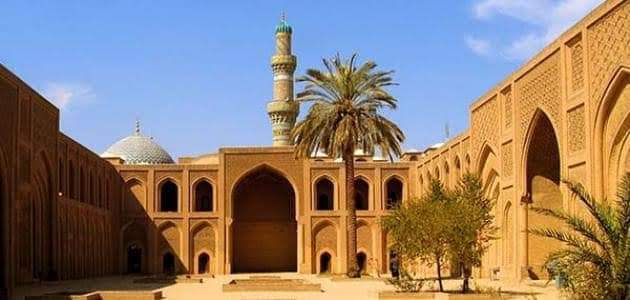Zahir Baybars
Written by / Hanan Hejres
Writer and researcher in Islamic antiquities and a member of the Guardians of Civilization team of archaeological awareness in Kafr El Sheikh branch
Zahir Baybars:
Assuming power:
It is known in the Mamluk custom that the killer easily replaces the murdered, as Baybars killed Qutuz, and when he killed him, he showed the courage and strength that achieved for him superiority over his fellow princes, in other words, whoever killed a king became king as Prince Qutuz was still lying on the ground in His blood did not dry up, and Fares al-Din Qatai pledged allegiance to Prince Baybars in the Sultanate, then followed by the rest of the princes, near Salhiya, where Cairo had been decorated to receive Sultan Qutuz and the people were in great joy and pleasure for what happened from the brokenness of the Mongols and the escape of Egypt from their wickedness. So Qatai shouted saying: Have mercy on the victorious king and pray to your sultan, the king El Qaher Rukn El Din Baybars
As for Baybars, he went to the castle of the mountain, where he was received by the deputy of the Sultanate, Izz al-Din Aidmar, who did not find he and the senior princes escaped from taking the oath of allegiance to the new Sultan Baybars and sat in his possession and swore to the people of different classes, and in that first stage of his sultanate, Baybars approached the private and the public, so he relaxed On the authority of the people, taxes, and he canceled the money that Sultan Qutuz had imposed and created under the pretext of fighting the Tatars.
Baybars and the revival of the Abbasid caliphate:
It is known that the Abbasid caliphate fell in Baghdad at the hands of the Tatars in 656 AH, and many rulers tried to revive the Islamic caliphate from them, but they did not succeed. Sultan Baybars' attempts came as his ally was fortunate to achieve that goal as his efforts culminated when Prince Zahir bin Nasser al-Abbasi arrived in Egypt, and Baybars received him With warm welcome and the Sultan held a council in the castle, he called the judiciary, scholars and princes and witnessed the authenticity of that imam’s lineage, and after confirming the authenticity of the testimony, Sultan Zahir Baybars, the new caliph who was called Al-Mustansir in God, doubted some of Al-Mustansir’s lineage to God until Zahir Baybars prayed for him in the mosques and minted money in his name. Baybars said that if there was a clash in the future between him and the caliph, public opinion in the Islamic world would stand with the caliphate. This prompted Sultan Baybars to think quickly about getting rid of Caliph Al-Mustansir. Indeed, Baybars wanted to return the caliph to Baghdad to recover Baghdad, and the caliph was with him hundreds of The men were not ready to fight, and this was an opportunity for Baybars to send the caliph and the Tatars would get rid of them. Indeed, he was disposed of as the caliph did not find news
From this point, Sultan Baybars summoned another Emir from Bani Al-Abbas to replace him with the previous emir, and this prince was Abu Al-Abbas Ahmed who was called the ruler by God’s command and the Sultan pledged allegiance to him to the caliphate. Baybars also obtained from him the tradition of the Sultanate and at that time Baybars did not try to send the caliph to Baghdad, but kept him In Cairo, under their supervision, he was not given the opportunity to emerge and elevate his influence at the expense of the Mamluk Sultanate.
Baybars foreign policy:
First Baybars and the Crusaders in the Levant: Baybars' wars against the Crusaders were long and violent, always characterized by the preponderance of Baybars and his victory over his opponents. The war between Baybars and the Crusaders began in 661 AH when his armies attacked the city of Nazareth and then the city of Acre, but he did not succeed in taking it over and the relationship between them continued to witness a state From intense tension until he sought reconciliation with Baybars, and in his request he used a mixture of encouragement and intimidation, as he sent saying to the Sultan that if you ascended to heaven or descended to earth you would not get rid of us. Al-Shamilah over the Crusaders in 663 A.H. The Crusaders seized Caesarea, Jaffa and Iqlit, then Safed, and destroyed the armies of Baybars, Minor Armenia, especially Adana, Tarsus, and Al-Musaytah. They also destroyed its capital, Sis. Great for the Crusaders in the Levant, the jihad movement was not limited to the Christian forces in the Near East only, but also extended to the island of Cyprus. The King of Cyprus did not forgive the threat of ships. In the eastern Mediterranean, Baybars prepared a naval campaign to conquer Cyprus, but it failed due to its exposure to a severe storm
The death of Al-Zahir Baybars: Baybars died in Damascus in the year 676 after he undertook great activity in supporting the Mamluk Sultans' state, laying its bases and defending it against any hostility



0 Comments